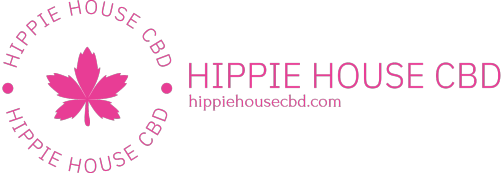CBD GUMMIES
Why Are CBD Gummy Sweets So Popular In The UKNovember 7, 2025
Navigating the legal landscape surrounding cannabis products can be complex, particularly when it comes to recreational use. Laws regarding THC-infused beverages vary widely across jurisdictions, leaving many consumers unsure about their legality.
Federal law in the United States still classifies marijuana and its derivatives, including THC, as illegal substances under Schedule I of the Controlled Substances Act. This means that regardless of state laws, possessing, selling, or manufacturing THC drinks remains federally prohibited.

However, many states have legalized recreational cannabis use, and with it, the sale and consumption of THC-infused beverages. These state laws often preempt federal law within their borders, allowing for a patchwork of regulations across the country.
Outside of the United States, the legality of THC drinks also varies significantly. Some countries, such as Canada, have legalized recreational cannabis and allow for the sale of edibles, including THC-infused beverages. Others, like Mexico, are currently in the process of legalizing cannabis.
Navigating the legal landscape surrounding cannabis products can be complex, particularly when it comes to recreational use. Laws regarding THC-infused beverages vary widely across jurisdictions, leaving many consumers unsure about their legality.
Federal law in the United States still classifies marijuana and its derivatives, including THC, as illegal substances under Schedule I of the Controlled Substances Act. This means that regardless of state laws, possessing, selling, or manufacturing THC drinks remains federally prohibited.
However, many states have legalized recreational cannabis use, and with it, the sale and consumption of THC-infused beverages. These state laws often preempt federal law within their borders, allowing for a patchwork of regulations across the country.
Currently, there is no nationwide legality for THC drinks in the United States for recreational use.
Several states have legalized the sale and consumption of THC-infused beverages for adults aged 21 and over. These states include California, Colorado, Oregon, Washington, Nevada, Illinois, Michigan, Vermont, Massachusetts, Maine, Arizona, and many others.
It’s crucial to remember that even in states where recreational use is legal, federal law still prohibits THC products.
While numerous states have legalized recreational marijuana, THC drinks remain illegal for recreational use in certain states.
These include states like Alabama, Idaho, Indiana, Iowa, Kansas, Nebraska, North Carolina, South Carolina, Tennessee, Texas, and Wisconsin.
Several states allow the sale and consumption of THC-infused beverages for adults aged 21 and over. California, Colorado, Oregon, Washington, Nevada, Illinois, Michigan, Vermont, Massachusetts, Maine, Arizona, are among those with legalized recreational use of THC drinks.
It’s important to note that even in states where recreational marijuana is legal, federal law still prohibits THC products.
THC drinks remain illegal for recreational use in certain states, including Alabama, Idaho, Indiana, Iowa, Kansas, Nebraska, North Carolina, South Carolina, Tennessee, Texas, and Wisconsin.

Regulations and restrictions surrounding cannabis products, particularly those containing THC, are a complex and evolving landscape. Laws vary significantly by jurisdiction, creating confusion for consumers trying to understand what is legal and permissible in their area.
Age limits for purchasing and consuming THC drinks are typically set at 21 years old, aligning with the legal age for purchasing alcohol in many states. However, some jurisdictions may have different age requirements.
These regulations aim to restrict access to cannabis products among minors, considering potential health risks associated with THC consumption.
It’s crucial for individuals to familiarize themselves with the specific age limits and regulations in their state or country before purchasing or consuming THC drinks.
Purchase limits for THC drinks also vary depending on the jurisdiction. Some states may impose caps on the amount of THC a single product can contain, while others may restrict the total amount of THC a person can purchase within a given period. These limits are often implemented to prevent excessive consumption and mitigate potential health risks associated with high doses of THC.
For example, California has a limit of 100 milligrams of THC per edible product, while Colorado allows for up to 500 milligrams of THC per package of edibles. It is essential for consumers to be aware of and adhere to these purchase limits in order to avoid legal penalties.
Lab testing requirements for THC drinks are often stringent in jurisdictions where recreational cannabis is legal. These regulations aim to ensure product safety, potency accuracy, and consumer protection.
Labs typically analyze THC drinks for various factors, including the concentration of THC and other cannabinoids, the presence of contaminants such as pesticides or heavy metals, and the absence of adulterants or mislabeling.
In some states, mandatory third-party lab testing is required before THC drinks can be sold legally.
These results are often made public, allowing consumers to make informed choices about the products they purchase.
Regulations may specify acceptable levels for contaminants and require specific testing methods to ensure accuracy and reliability. The goal of these rigorous standards is to create a safe and transparent market for THC-infused beverages.
Advertising restrictions for THC drinks vary widely depending on the jurisdiction.
The future legality of THC drinks for recreational use is uncertain and will likely continue to evolve as public opinion, scientific research, and legal challenges shape the landscape.
Increased legalization at the state level could eventually lead to federal reform, but it remains unclear when or if that will occur.
Factors influencing future legality include: public health concerns, evolving societal attitudes towards cannabis, and the potential for economic benefits associated with a regulated THC market.
Continued research into the effects of THC on both individual health and public safety will also play a role in shaping legal policy.
Order best-selling THC sparkling beverages
WhatsApp us

0